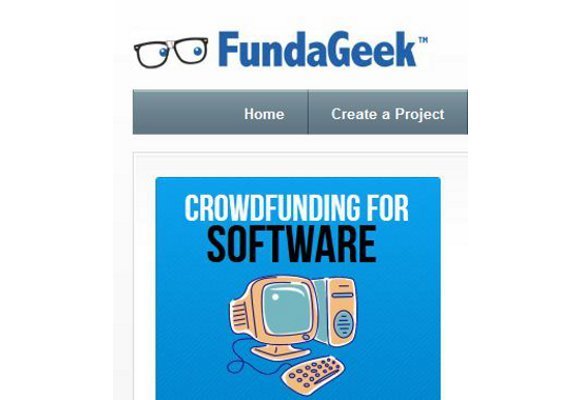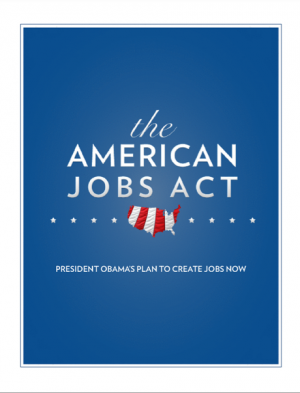Rory Eakin, co-founder of CircleUp, and Erick Mott of creatorbase discuss crowdfunding models, trends and pending S.E.C. rules in support of equity-based crowdfunding. This video was recorded in December 2012 for Search Engine Watch from CircleUp.com headquarters in San Francisco.
CFA: Crowdfunding Explained
Interview from WPRI-TV, channel 12, a CBS-affiliated television station located in Providence, Rhode Island, USA. WPRI-TV is the flagship station of LIN Television Corporation, and also operates Fox affiliate WNAC-TV (channel 64) through a local marketing agreement (LMA).
Crowdfunding Efforts Draw Suspicion
By Jean Eaglesham for The Wall Street Journal
Regulators are scrutinizing about 200 websites set up by entrepreneurs to profit from a more lenient law on the sale of shares in small companies.
State securities officials identified the websites after a sweep of thousands of Internet addresses for possible threats to investors following the looming change.
The probe was triggered by the Jumpstart Our Business Startups, or JOBS, Act, which dismantles many of the legal constraints on small companies selling shares on the Internet.
Securities laws currently prohibit private companies from advertising or selling shares to investors who aren’t relatively wealthy. The JOBS Act will allow companies to raise up to $1 million a year through small share sales to ordinary investors.
Equity Crowdfunding Rules Stalled at SEC
By Kyle Stock for Entrepreneur.com
To make the leap from theory to reality, crowdfunding will require the core elements of entrepreneurial spirit: a tolerance for risk and an urgency to execute on a great idea.
Sadly, both of those qualities are in short supply in Washington, D.C.
While the U.S. government slid under its New Year deadline to avert the fiscal cliff, it blew right past its milestone calling for a comprehensive set of rules to control crowdfunding, where small firms sellequity stakes without having to go through the expensive registration traditionally required by regulators.
Start With Family, Incubators and Crowdfunding Sites
By Kevin Colleran
One of the very first hurdles that a new entrepreneur faces is how to find the initial capital necessary to fund the process of building a company. Most entrepreneurs begin using their own money for the initial costs. Eventually, however, the time comes that it no longer makes sense (or is no longer possible) to continue doing this. At this point, entrepreneurs need to figure out a strategy to raise the funds necessary while minimizing disruption of day-to-day business operations. If done incorrectly, fundraising can be incredibly distracting and difficult for the entrepreneur, and can slow any initial momentum that the business has attained. The best options for finding initial angel and seed investors are friends and family, incubators, professional investors and crowdfunding.
5 Key Points To Know About Equity Crowdfunding
By Tanya Prive for Forbes
In April 2012, President Obama signed the JOBS (Jumpstart Our Business Startups) Act, aiming to revitalize opportunities for entrepreneurs, startups, and small businesses; e.g. America’s main job creators. Briefly, main benefits of the JOBS Act as it is now are as follows.
The JOBS Act will enable entrepreneurs, start-ups, and small businesses to raise funds and gather investors through equity crowdfunding. It will reopen American Capital Markets to Emerging Growth Companies (Companies with total annual gross revenues of less than $1 billion). It also lifts the ban on general solicitation/advertising; allowing entrepreneurs, start-ups, and small businesses to advertise for new investors, and assures that these businesses will have the necessary time and flexibility needed to grow.
Platform Review: FundaGeek
 Summary: FundaGeekis a crowdfunding platform focusing on technical innovation, such as commercial projects based on technology, scientific research projects at universities and research institutions, education, and more. The site focuses on seven to 90-day commercial technology or tech research projects.
Summary: FundaGeekis a crowdfunding platform focusing on technical innovation, such as commercial projects based on technology, scientific research projects at universities and research institutions, education, and more. The site focuses on seven to 90-day commercial technology or tech research projects.
Best Feature: When users submit a project, it undergoes a review to ensure it’s creative, unique, and appealing to a variety of people. FundaGeek also allows the user to make a project private so donors have to log in to see the full project details.
What To Consider: The site can be a bit difficult to browse and could use a categorical feature for searching for projects. Also, because FundaGeek screens projects before adding them to the site, not every interested patron has the chance to use its services.
Ideal User: Individuals looking to fund research or projects in the technology and science sector will find FundaGeek to be a good option.
Cost: There is no charge to create a project on FundaGeek, but if a project is successfully funded, the site charges 5 to 9% depending on which marketing option you choose.
Watchmaker Pebble: From Crowdfunding Hype to Product Launch
Upstart watchmaker Pebble announced at CES this week it would ship its smartwatch on January 23.
The smartwatch connects to a smartphone. “The idea is that instead of having to constantly pull out your smartphone, you can just glance down and see the key portion of the message right there,” said Pebble CEO Eric Migicovsky on CNBC’s “Squawk on the Street” Thursday. If you want to ignore the call, you simply shake your wrist. “If it’s someone you can brush off, you can just cancel it right there,” he said.
Fun features aside, Pebble’s arrival to market hasn’t been smooth. After becoming a darling on crowdfunding site Kickstarter last year, the startup ran into trouble when demand far outpaced supply, and the upstart wasn’t able to deliver by September 2012 as promised.
Full Story Here
Five tips to help you succeed at crowdfunding.
Today there are more than 50 crowdfunding sites in the U.S. and countless projects asking for your donations. If you’re looking to successfully fund your project, here are some useful tips:
1. Build beyond your network — The people who are most likely to give are a part of your close social network. After that, it’s friends of friends. For some people, the biggest challenge is breaking beyond their close social network. But that’s something you must do in order to succeed. One strategy: pre-work. Put effort into building your network before you launch.
2. Know when to outsource — These days, there are services popping up that deal with everything from marketing your project to the distribution of products/rewards. Some examples of this include: a video producer creating an ad for the product, a copy editor coming up with text for the website, someone handling communication/social media use during the campaign, and hiring someone to distribute the product if your campaign is a success. When you can’t do it all — and do it well — know when to seek help.
Crowdfunding Campaigns and Sites are Popping Up Everywhere
Interview and Article by Erick Mott,
Since the JOBS Act was signed into law in April 2012, crowdfunding campaigns and platforms have been growing like wildflowers. There are many choices for businesses, entrepreneurs and marketing consultants but also some equity-based crowdfunding uncertainties with pending Securities and Exchange Commission rules. I recently sat down in San Francisco with Rory Eakin, co-founder at CircleUp, to talk about crowdfunding models, funding strategies, and congressional developments on the horizon with the S.E.C. working on new rules that will likely change fundraising and investing forever.







